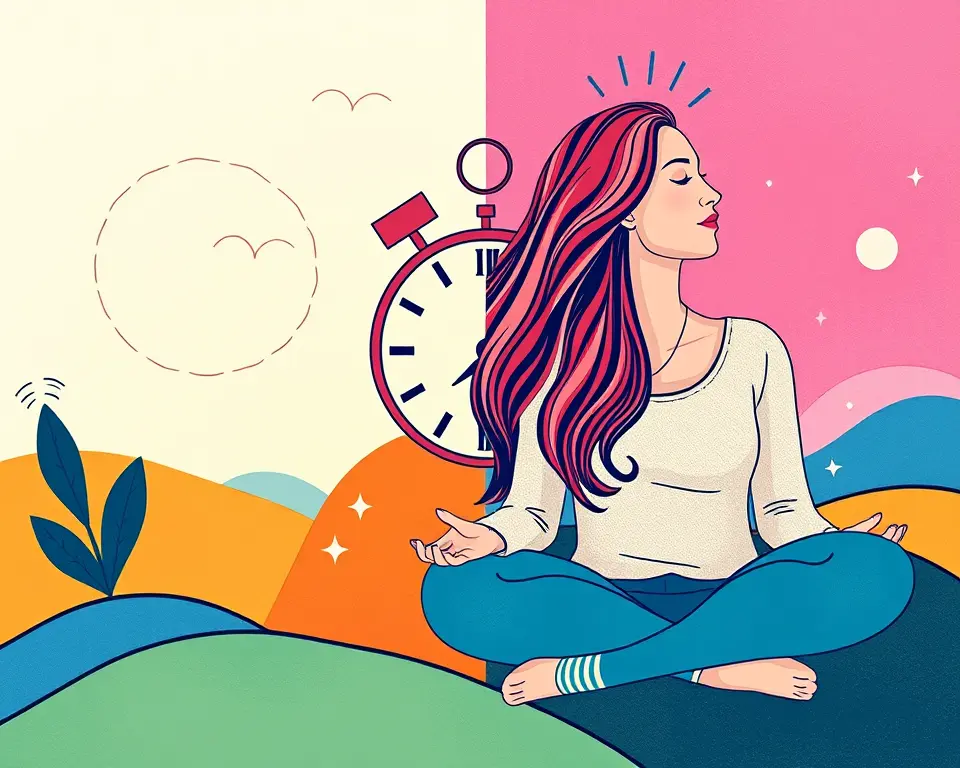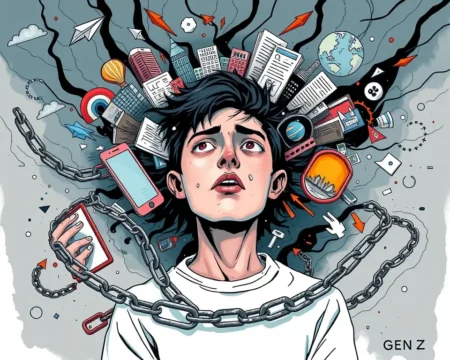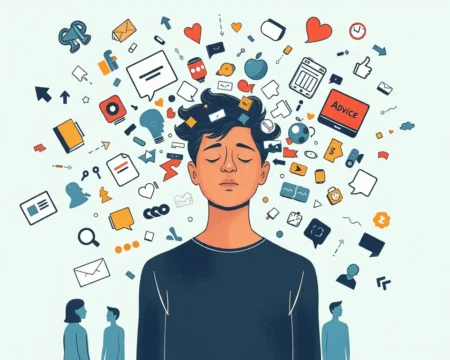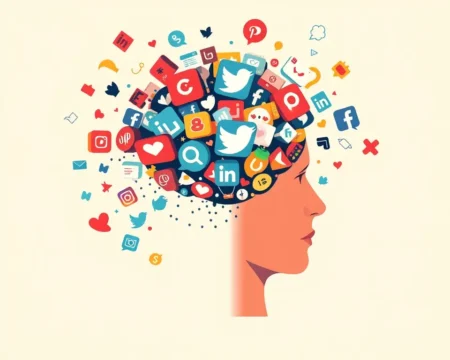The pursuit of mental well-being has surged into the mainstream, shedding its former stigmas and becoming a central focus for individuals seeking happier, healthier lives. Leading this charge are figures like Mel Robbins and Gabrielle Bernstein, who have successfully translated complex psychological concepts into accessible, actionable tools for everyday life. Both have built empires on offering advice and techniques for improving mindset, overcoming challenges, and achieving personal growth, and are key figures in the growing self-help industry.
The Rise of Mental Health Tools
The shift toward prioritizing mental health is reflected in the booming self-improvement market. It’s currently valued at $45.7 billion and is projected to reach $90.5 billion by 2033. This growth isn’t just about revenue; it signifies a deeper cultural change where individuals are actively seeking resources to manage stress, anxiety, and other mental health challenges.
Mental health tools encompass a wide range of resources, from apps and online programs to books, podcasts, and workshops. These tools aim to empower individuals to take control of their mental and emotional states, offering strategies for:
- Stress management: Techniques for coping with daily stressors and building resilience.
- Anxiety reduction: Methods for managing anxiety symptoms, such as mindfulness and breathing exercises.
- Improved mindset: Strategies for cultivating a more positive and optimistic outlook.
- Personal growth: Tools for identifying and achieving personal and professional goals.
Mel Robbins: From Lawyer to Mindset Maven
Mel Robbins, an Ivy League-educated former criminal defense attorney, has become a leading voice in the self-help world. Robbins is known for her no-nonsense approach and science-backed strategies for overcoming procrastination, building confidence, and achieving goals.
The 5 Second Rule
One of Robbins’ most popular tools is the “5 Second Rule”, a simple yet powerful technique for overcoming hesitation and taking action. The rule involves counting down from 5 to 1 and then immediately taking the desired action. Robbins argues that this brief countdown interrupts the brain’s tendency to overthink and allows individuals to push past fear and self-doubt.
The High 5 Habit
Another key tool is the “High 5 Habit”, which encourages individuals to start their day by giving themselves a high five in the mirror. Robbins posits that this simple act can boost self-esteem and create a more positive mindset.
Media Presence and Impact
Robbins has built a significant online presence, with millions of followers across various platforms. She hosts The Mel Robbins Podcast, which has garnered millions of downloads and was recognized with a Webby Award in 2022. Her books, including “The 5 Second Rule” and “The High 5 Habit,” have become bestsellers, translated into multiple languages. TIME Magazine recognizes Robbins as giving millions of listeners globally “a reason to believe in themselves,” and USA Today calls her “a force to be reckoned with.” As of early 2025, Mel Robbins’ net worth is estimated at $17 million, reflecting her successful career as an author, speaker, and media personality.
Gabrielle Bernstein: Spirituality and Self-Help
Gabrielle Bernstein, a motivational speaker and author, approaches mental health from a spiritual perspective. Bernstein integrates principles of spirituality, mindfulness, and positive psychology to help individuals overcome fear, cultivate self-love, and connect with their inner guidance.
The Universe Has Your Back
Bernstein’s book, “The Universe Has Your Back,” emphasizes the power of faith and trust in the universe to guide individuals toward their highest potential. She encourages readers to release their need for control and surrender to a higher power, believing that this can lead to greater peace, joy, and abundance.
Super Attractor
In “Super Attractor,” Bernstein explores the principles of manifestation, teaching readers how to align their thoughts, feelings, and actions with their desires to attract positive outcomes. She emphasizes the importance of gratitude, visualization, and positive affirmations in creating a life of abundance and fulfillment.
Democratizing Spiritual Self-Help
Bernstein launched the Gabby Coaching App in 2023, aiming to make spiritual self-help accessible to a wider audience. This app provides users with tools and resources for personal growth, including meditations, affirmations, and coaching programs. For over fifteen years, Bernstein has been transforming lives, and The New York Times has called her “a role model for a new generation of spiritual seekers.”
The Evolving Landscape of Mental Health
The work of Mel Robbins, Gabrielle Bernstein, and others has contributed to a more open and accepting conversation about mental health. Their accessible tools and strategies have empowered individuals to take proactive steps toward improving their well-being.
Rise in Awareness
Increasing awareness of mental health issues is propelling the self-improvement market’s growth. As more people recognize the importance of mental and emotional well-being, they are actively seeking resources to support their journey.
Accessibility and Technology
The rise of technology has played a significant role in making mental health tools more accessible. Online platforms, apps, and podcasts have democratized access to information and support, allowing individuals to engage with mental health resources from the comfort of their own homes. Mobile-based applications make up 30% of the self-improvement market.
Focus on Mental Well-being
The self-improvement market increasingly emphasizes mental well-being, representing 35% of the market’s focus. This reflects a growing recognition of the interconnectedness between mental, emotional, and physical health.
Challenges and Criticisms
While the mainstreaming of mental health tools has many benefits, it’s important to acknowledge potential challenges and criticisms.
Oversimplification
Some critics argue that self-help tools can sometimes oversimplify complex psychological issues. Mental health is multifaceted, and a one-size-fits-all approach may not be effective for everyone.
Lack of Professional Guidance
Self-help tools should not be considered a replacement for professional mental health care. Individuals with serious mental health conditions should seek guidance from qualified therapists or psychiatrists.
The Potential for Harm
There are concerns that some self-help advice may be inaccurate, misleading, or even harmful. It’s crucial to evaluate the credibility and expertise of those providing mental health tools and information.
Navigating the Mental Health Landscape
As mental health tools become increasingly prevalent, it’s important to approach them with a critical and informed perspective.
Seek Reputable Sources
Look for resources from trusted organizations, qualified professionals, and individuals with proven expertise in mental health.
Consider Individual Needs
Recognize that mental health is a personal journey, and what works for one person may not work for another. Experiment with different tools and strategies to find what resonates with your unique needs and preferences.
Prioritize Professional Care
If you are struggling with significant mental health challenges, prioritize seeking professional care from a qualified therapist or psychiatrist. Self-help tools can be a valuable supplement to professional treatment, but they should not be considered a substitute.
Building a Wellness Toolbox
Developing a wellness toolbox that includes a variety of strategies and activities that promote mental and emotional well-being is essential. Such tools might include:
- Self-care activities: Journaling, exercise, warm baths.
- Relaxation techniques: Breathing exercises, meditation.
- Social connection: Spending time with loved ones, joining support groups.
- Creative expression: Drawing, painting, playing music.
- Mindfulness practices: Taking a meditative walk in nature
The Future of Mental Health Tools
The future of mental health tools is likely to be shaped by ongoing technological advancements, increasing personalization, and a greater emphasis on preventative care.
Personalized Mental Health
Advances in artificial intelligence and data analytics may lead to more personalized mental health tools that are tailored to individual needs and preferences.
Preventative Mental Health
There is growing interest in developing mental health tools that focus on prevention, helping individuals build resilience and cope with stress before it escalates into more serious problems.
Integration with Healthcare
Mental health tools may become more integrated with traditional healthcare systems, with healthcare providers using apps and online platforms to monitor patients’ progress and provide remote support.
Conclusion
Mel Robbins and Gabrielle Bernstein represent a new wave of mental health advocates who are making a significant impact on how individuals approach their well-being. By translating complex concepts into accessible tools, they are empowering people to take control of their mental and emotional states. As the self-improvement market continues to grow and evolve, it’s crucial to approach mental health tools with a discerning eye, prioritizing reputable sources, individual needs, and professional care when necessary. The ongoing conversation is fostering a culture of openness, acceptance, and proactive self-care, ultimately contributing to a healthier and happier society.










